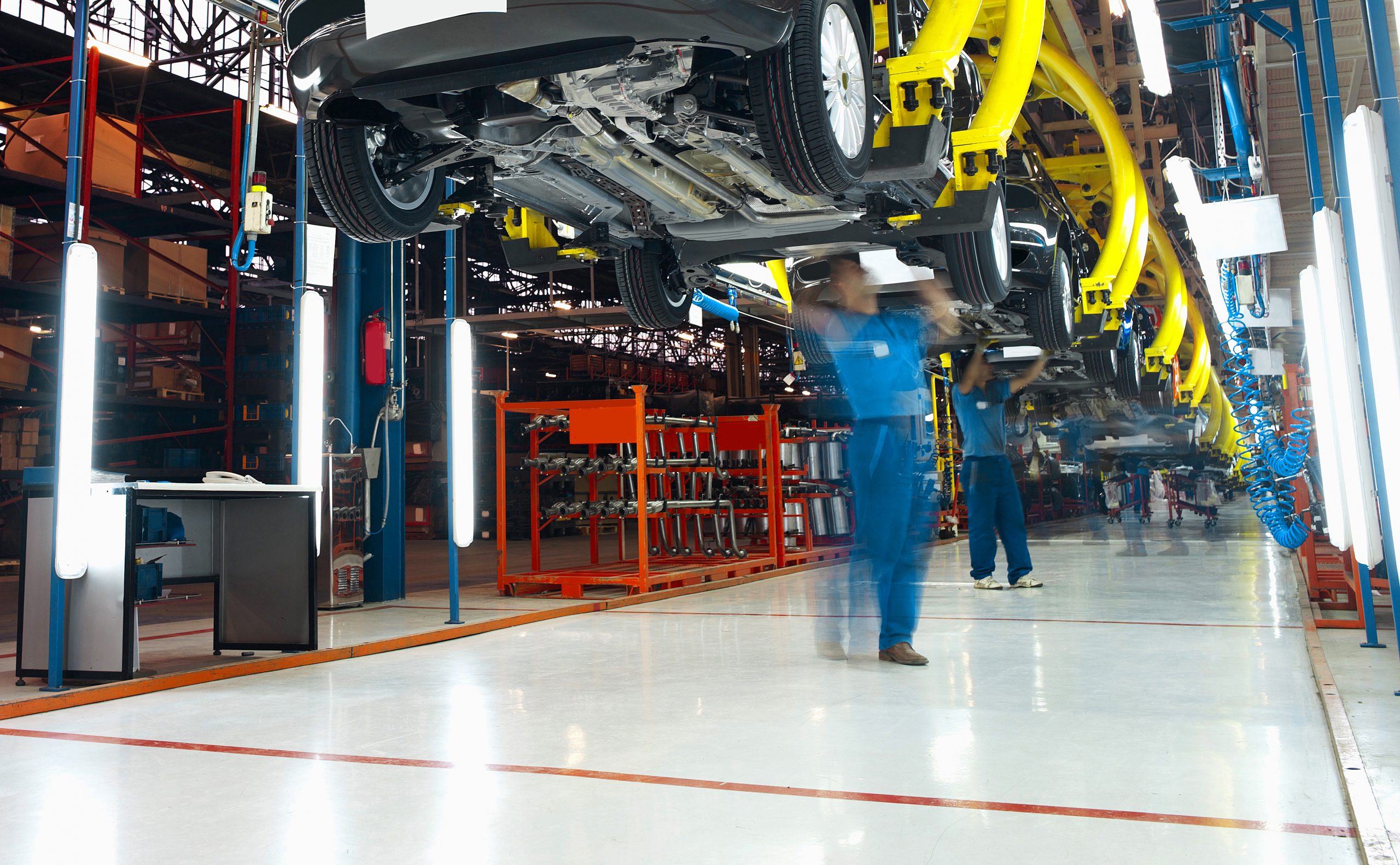Electric vehicle systems are more complex than a traditional internal combustion engine, so they require special manufacturing processes. Many of the workers involved in the manufacture of electric vehicles have previously worked in traditional vehicle manufacturing.
Electrical and Electronic Equipment Assemblers
Electrical and electronic equipment assemblers build products such as electric motors, computers, electronic control devices, and sensing equipment. Some of these components may be too small or fragile for human assembly, so they are assembled by automated systems. Electrical and electronic equipment assemblers fit together the parts of larger components or controlling automated systems that are used for smaller pieces.
Electromechanical Equipment Assemblers
Electromechanical equipment assemblers build and assemble electromechanical components used in electric vehicles, such as gasoline engines, electric motors, and generators. This occupation is similar to electrical and electronic equipment assemblers. However, these workers focus more on the mechanical components, as opposed to electronics.
Hazardous Waste Technicians
Hazardous waste technicians conduct site inspections, provide emergency spill response, and perform the collection of hazardous wastes from manufacturing processes
Engine and Other Machine Assemblers
Engine and other machine assemblers construct and assemble engines used in automobiles such as gasoline-powered engines that are present in hybrid cars and may be responsible for other components as well.
Computer-Controlled Machine Tool Operators
Computer-controlled machine tool operators use machines to fabricate metal and plastic components of vehicles. They may also be responsible for some routine maintenance of the machines or for troubleshooting if a problem occurs.
Machinists
Machinists use machine tools, such as lathes, milling machines, and grinders, to produce precision metal parts. Machinists are responsible for monitoring the machines and the quality of the output. Machinists are also responsible for producing small batches or making one-of-a-kind parts for prototypes or testing.
Industrial Production Managers
Industrial production managers plan, direct, and coordinate the production activities required to manufacture vehicles and vehicle components. They are responsible for monitoring the production run to make sure that it stays on schedule and for correcting any problems that may arise.
| Occupations | Number of Jobs (2020) | Median Wage (2020) | Median Wage (2020) | Entry-Level Training Requirements |
|---|---|---|---|---|
| Motor vehicle engine and other machine assemblers | 43,700 | 4.3% | $45,770 per year | High school diploma or equivalent |
| Electrical, electronic, and electromechanical assemblers | 284,800 | 7% | $36,390 per year | High school diploma or equivalent |
| Electricians | 729,600 | 9% | $56,900 per year; $27.36 per hour | High school diploma or equivalent |
| Electronic equipment installers and repairers, motor vehicles | 116,600 | 2% | $62,020 per year; $29.82 per hour | High school diploma or equivalent |
| Hazardous materials removal workers | 44,500 | 7% | $45,270 per year; $21.77 per hour | High school diploma or equivalent |
| Computer-numerically controlled tool operators | 149,120 | $42,260 per year; $20.32 per year | High school diploma or equivalent | |
| Machinists and tool and die makers | 425,300 | 7% | $47,040 per year; $22.62 per hour | High school diploma or equivalent |
| Industrial production managers | 189,300 | 5% | $108,790 per year; $52.30 per hour | Bachelor’s degree |
| Telecom equipment installers and repairers | 195,800 | -1% | $61,470 per year; $29.55 per hour | Postsecondary nondegree award |
